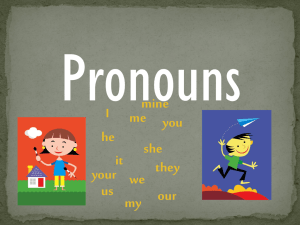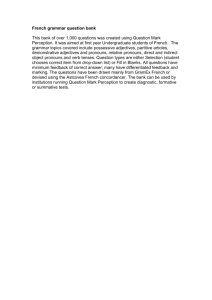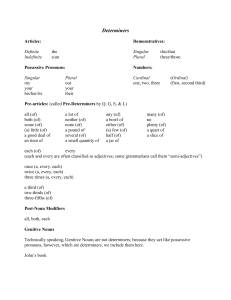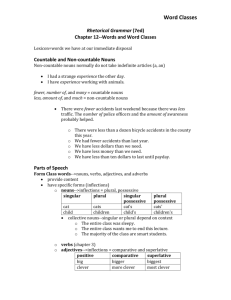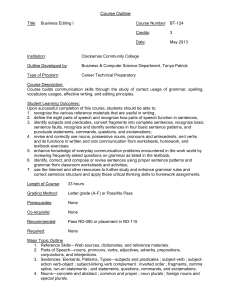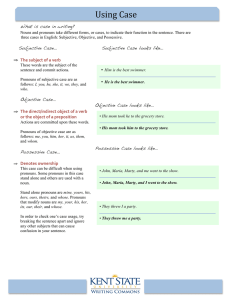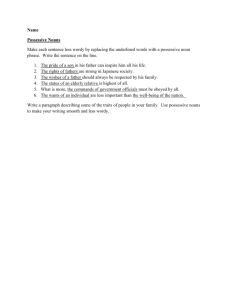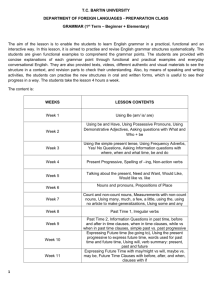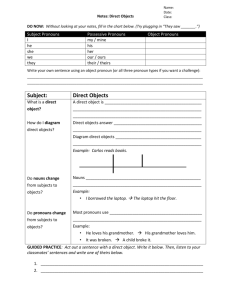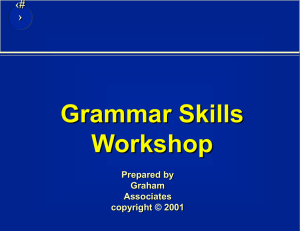Lesson 29_Phrasal verbs_module 6&Language
advertisement
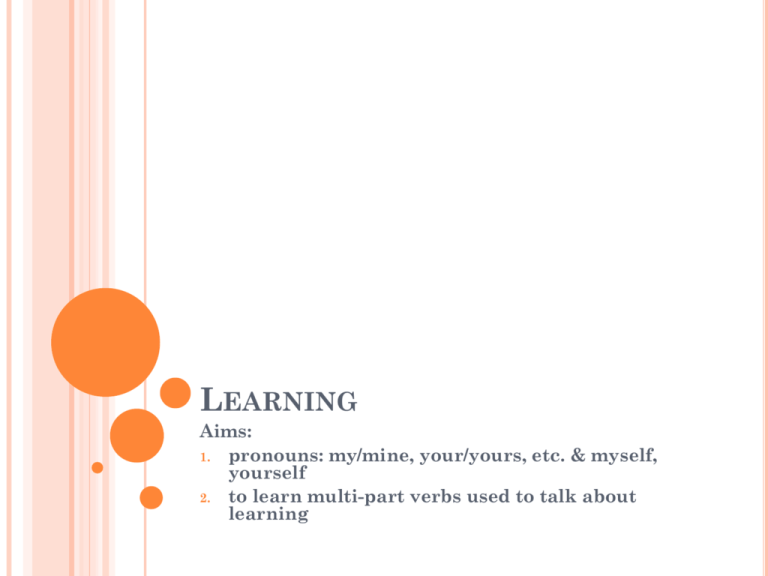
LEARNING Aims: 1. pronouns: my/mine, your/yours, etc. & myself, yourself 2. to learn multi-part verbs used to talk about learning POSSESSIVE ADJECTIVES AND PRONOUNS We use possessive adjectives in front of nouns. I forgot to bring my dictionary. We use possessive pronouns without nouns. You can use mine. REFLEXIVE PRONOUNS I – myself you – yourself he – himself she – herself it – itself we – ourselves you – yourselves they – themselves Reflexive pronouns are used when: the subject and object of the sentence are the same. I think they enjoyed themselves at the party. we want to say ‘with no one’s help or company’. He wrote the essay himself. P.77, EX.8 Catch up with = stici Fall behind = zaostati Get on with = slagati se sa nekim Get together = okupiti se , naci se sa nekim Go on = nastaviti Go over = proci kroz (npr. gradivo) Look up = pogledati nesto u recniku ili u enciklopediji Put off = odlagati Put on = igrati (predstavu), odrzati (koncert) Set up = organizovati, osnovati Take up = poceti se baviti (sportom ili hobijem) MULTI-PART VERBS – PRACTICE She keeps _________ going to the dentist. After missing a term he had to work hard to ______________ the others. _________ your work carefully before you hand it in. The local drama club are __________“Macbeth” at the Playhouse. _________ the time of the next train in the timetable. France has ___________ Germany in coal production. After her early teaching career, she __________to become a doctor. we can use plural when we use collective nouns MULTI-PART VERBS – PRACTICE She keeps putting off going to the dentist. After missing a term he had to work hard to catch up with the others. Go over your work carefully before you hand it in. The local drama club are putting on “Macbeth” at the Playhouse. Look up the time of the next train in the timetable. France has fallen behind Germany in coal production. After her early teaching career, she went on to become a doctor. we can use plural when we use collective nouns
